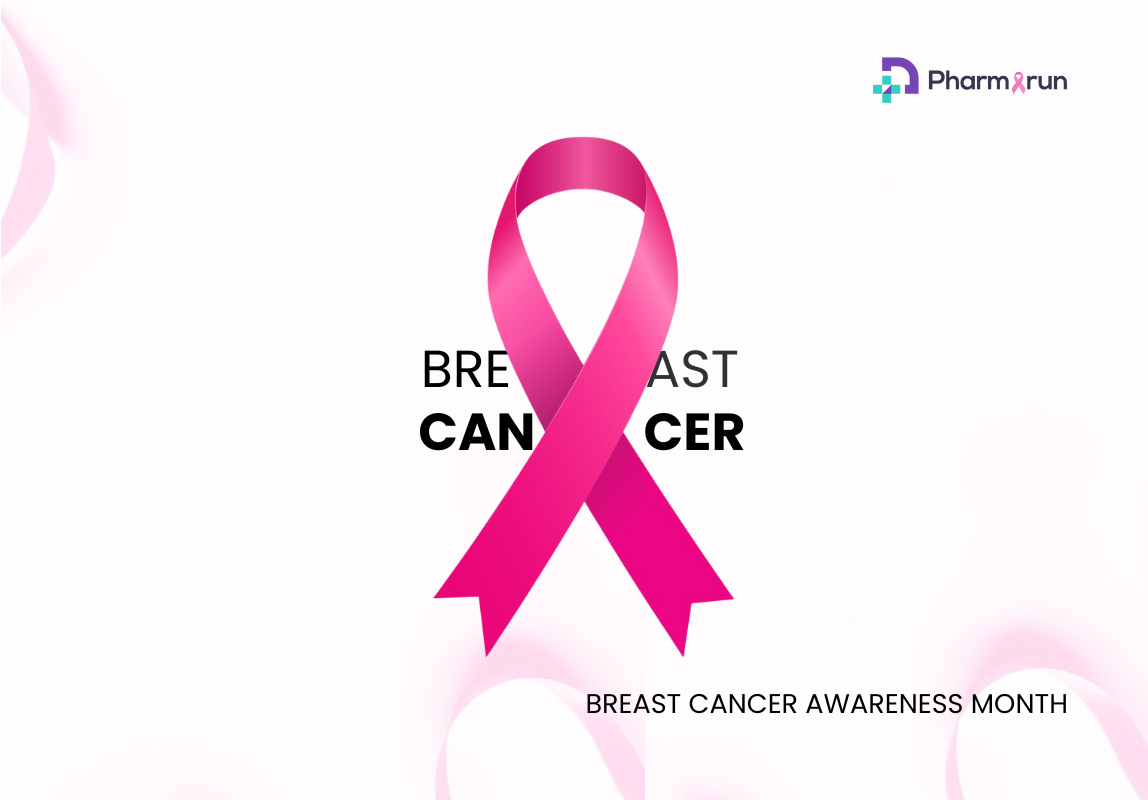Depression and Other Related Conditions | Pharmarun

Depression, a prevalent yet complex mental health condition, happens when there is persistent feelings of sadness, loss of interest, or low mood, significantly impacting daily life. This can manifest in various ways, including changes in sleep patterns, appetite, energy levels, and concentration. Beyond the individual, depression carries significant societal burdens, impacting productivity, healthcare costs, and even contributing to suicide risk.
It's important to note that depression is not simply feeling down or experiencing sadness in response to life events. It is a distinct clinical condition with various related terms and conditions, including:
- Major depressive disorder (MDD): The most common form of depression, characterized by a severe episode lasting at least two weeks.
- Dysthymia: A milder but chronic form of depression lasting at least two years.
- Bipolar disorder: A mood disorder characterized by alternating episodes of depression and mania (elevated mood and energy).
- Seasonal affective disorder (SAD): Depression associated with changes in seasons, usually occurring during winter months.
Different Types of Depression
1. Clinical Depression (Major Depressive Disorder)
Symptoms and Signs
Clinical depression, also known as major depressive disorder (MDD), is characterized by a combination of emotional, physical, and cognitive symptoms that persist for at least two weeks and can significantly interfere with ones daily life. These symptoms can include:
- Emotional: Persistent sadness, hopelessness, feeling empty, irritability, anxiety, guilt, worthlessness, difficulty feeling pleasure (anhedonia).
- Physical: Changes in appetite or weight (gain or loss), sleep disturbances (insomnia or hypersomnia), fatigue, decreased energy, psychomotor changes (slowed down or agitated), unexplained aches and pains.
- Cognitive: Difficulty concentrating, making decisions, remembering things, negative thoughts about oneself and the future.
Not everyone experiences all of these symptoms, and the severity can vary greatly. If you are concerned about yourself or someone you know, you should seek professional help for proper diagnosis and treatment.
Diagnosis and Treatment Options
Diagnosing clinical depression typically involves a mental health professional conducting a comprehensive evaluation, including a detailed discussion of symptoms, medical history, and psychological assessments. There is no single test for depression, but this combined approach can help with accurate diagnosis and development of an effective treatment plan.
Treatment for MDD often involves a combination of medication and therapy
- Medication: Antidepressants, such as selective serotonin reuptake inhibitors (SSRIs) or serotonin-norepinephrine reuptake inhibitors (SNRIs), can help regulate brain chemicals and alleviate symptoms.
- Therapy: Various forms of therapy, like cognitive-behavioral therapy (CBT) and interpersonal therapy (IPT), can help individuals identify and address negative thought patterns, develop coping skills, and improve overall well-being.
2. Other Types of Depression
1. Bipolar Disorder (Manic-Depressive Illness):
Bipolar disorder is a mood disorder characterized by alternating episodes of mania (elevated mood, energy, and activity levels) and depression. These episodes can last for days, weeks, or even months, seriously affecting one's daily life.
Symptoms
During a manic episode, individuals may experience:
- Elevated or irritable mood
- Racing thoughts and speech
- Increased energy and activity levels
- Decreased need for sleep
- Grandiose ideas or inflated self-esteem
- Risky or impulsive behavior
- Difficulty concentrating
Treatment
Bipolar disorder requires long-term management, typically involving a combination of medication (mood stabilizers) and therapy (CBT, family therapy) to manage symptoms and prevent future episodes.
To read more about bipolar disorder, click here
2. Postpartum Depression:
Postpartum depression is a complex condition with various contributing factors, including hormonal changes, sleep deprivation, emotional stress, and social isolation following childbirth.
Signs: While experiencing some emotional fluctuations after birth is normal, postpartum depression is happens when there are persistent and intense symptoms such as
- Feeling overwhelmed, sad, or anxious most of the day
- Loss of interest in activities previously enjoyed
- Difficulty bonding with the baby
- Changes in appetite or sleep patterns
- Hopelessness, guilt, or worthlessness
- Difficulty concentrating or making decisions
- Thoughts of harming oneself or the baby
Treatment
Seeking professional help is very important in this case. Treatment options often include antidepressants, therapy (CBT, interpersonal therapy), and support groups for mothers experiencing postpartum depression.
3. Seasonal Affective Disorder (SAD)
SAD, also known as the "winter blues," is a type of depression triggered by changes in seasons, typically occurring during the fall and winter months with reduced sunlight exposure. Symptoms can include:
- Feeling depressed, sad, or irritable
- Loss of interest in activities previously enjoyed
- Changes in appetite (overeating) or weight gain
- Excessive sleepiness and fatigue
- Difficulty concentrating or making decisions
- Social withdrawal
Causes: The exact cause of SAD is unknown, but it is believed to be linked to reduced exposure to sunlight, which affects the body's natural production of melatonin and serotonin, affecting mood and sleep regulation.
Management Strategies.
Light therapy, which involves regular exposure to bright light, is the first-line treatment for SAD. Other strategies include maintaining a regular sleep schedule, getting sufficient exercise, and engaging in activities that bring joy. In some cases, therapy and medication may also be recommended by a healthcare professional.
4. Persistent Depressive Disorder (Dysthymia):
Dysthymia is a chronic, low-grade form of depression that happens when symptoms last at least two years. While the symptoms may not be as severe as those in major depressive disorder, it can still significantly affect daily life and well-being. Individuals with dysthymia may experience:
- Depressed mood or a general sense of emptiness most of the day
- Loss of interest in activities
- Changes in appetite or sleep patterns
- Low energy or fatigue
- Difficulty concentrating or making decisions
- Feelings of hopelessness or low self-esteem
Treatment for dysthymia typically involves individual therapy, such as CBT, and may also involve medication, including antidepressants.
5. Psychotic Depression:
Explanation: Psychotic depression is a severe form of depression characterized by the presence of psychotic symptoms, such as delusions (false beliefs) and hallucinations (seeing or hearing things that are not there), in addition to typical depressive symptoms.
Symptoms: In addition to symptoms of major depressive disorder, individuals with psychotic depression may experience:
- Delusions, often with themes of guilt, worthlessness, or persecution
- Hallucinations, most commonly auditory (hearing voices)
Treatment: Due to the complexity of psychotic depression, treatment typically involves a combination of medication (antidepressants, antipsychotics), hospitalization in severe cases, and intensive therapy to manage mood symptoms and address psychotic episodes.
Signs and Symptoms Of Depression.
Depression can manifest differently in individuals, but some common signs and symptoms exist for both men and women
- Emotional Symptoms:
- Persistent sadness, hopelessness, or emptiness
- Loss of interest or pleasure in activities once enjoyed
- Irritability, anger, or frustration
- Feelings of guilt, worthlessness, or helplessness
- Anxiety, worry, or restlessness
- Difficulty concentrating, making decisions, or remembering things
- Suicidal thoughts or ideation
- Physical Symptoms:
- Changes in appetite or weight (gain or loss)
- Sleep disturbances (insomnia or hypersomnia)
- Fatigue or decreased energy levels
- Unexplained aches and pains
- Changes in appetite or sex drive
- Behavioral Changes
- Social withdrawal or isolation
- Neglecting personal hygiene or responsibilities
- Increased substance use (alcohol, drugs)
- Reckless or impulsive behavior
Not everyone experiences all these symptoms, and the severity can vary greatly. However, if you are experiencing several of these symptoms persistently for more than two weeks, it's advisable to seek professional help urgently from a mental health professional.
Why seek professional help?
A qualified mental health professional can:
- Conduct a comprehensive evaluation to diagnose depression or any other underlying conditions.
- Develop a personalized treatment plan, which may include medication, therapy, or a combination of both.
- Provide resources and support to help manage symptoms and improve your overall well-being.
Here are some ways you can find mental health resources in Nigeria:
- Search online: A simple search for "mental health resources Nigeria" should provide you with a list of organizations and hotlines that can help.
- Talk to your doctor: They may be able to refer you to a mental health professional or connect you with local resources.
- Contact a mental health organization: There are many reputable organizations in Nigeria that offer support and services to people with mental health conditions. You can find a list of organizations by searching online or contacting your local government office.
Conclusion
Depression is a prevalent and complex mental health concern that can significantly affect individuals and society. However, through awareness, understanding, and seeking professional help, individuals can manage their symptoms and reclaim their mental health.
We can create a supportive environment for individuals suffering from depression to reach out for help. Remember, seeking professional help is not a sign of weakness, but a sign of strength and taking charge of your mental health.
There is hope and recovery for everyone struggling with depression and related conditions. With proper diagnosis, treatment, and support, individuals can experience significant improvement in their health. If you are concerned about yourself or someone you know, please reach out to a trusted friend, family member, or mental health professional. You are not alone, and there is help available.
Lastest bants
Stories, facts and bants on this journey to ensuring access to medication for Africa
Download Pharmarun today!
Get started with us today by using our delivery service. Also, be one of the first to experience our unique healthcare platform.





